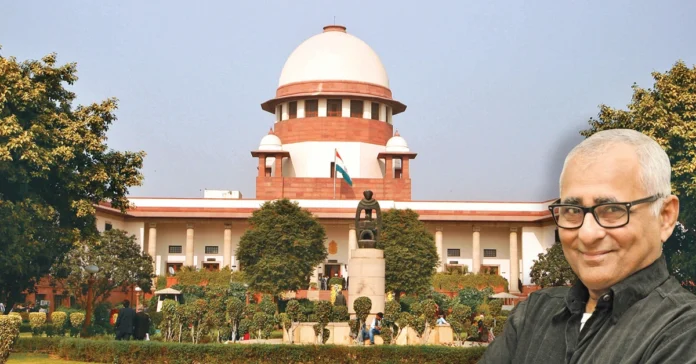By Inderjit Badhwar
SHAAN Katari Libby’s cover story on the Supreme Court’s recent directive to approach the Election Commission of India (ECI) regarding the application of the Sexual Harassment of Women at Workplace (Prevention, Prohibition, and Redressal) Act, 2013, (POSH Act) to political parties brings much-needed attention to a glaring oversight.
While the Act has transformed workplace protections for women across sectors, its exclusion from political spaces reveals a troubling double standard. Women in politics, who navigate a traditionally male-dominated and often hostile environment, remain deprived of the safeguards they rightfully deserve.
A Systemic Gap
The POSH Act explicitly applies to all workplaces, yet political parties have managed to skirt its implementation. Currently, disciplinary mechanisms within parties, such as ad hoc committees, lack the statutory mandates of the POSH Act—like including external members or adhering to procedural standards. This loophole leaves women party workers, who form nearly 20 percent of the 198 million party workers in India, without formal recourse.
A stark example of the need for reform lies in the 2023 protests by female wrestlers against BJP MP Brij Bhushan Sharan Singh, accused of sexual harassment.
While public pressure forced Singh to resign from his position in the Wrestling Federation of India, he retained his role as an MP and remained active within the BJP. Such cases highlight the inadequacy of internal mechanisms and the urgent need for accountability.
Lessons from the Past and Abroad
The Vishakha judgment of 1997, prompted by the harrowing case of Bhanwari Devi, laid the groundwork for workplace protections for women. However, despite this progressive jurisprudence, political parties have exploited their non-traditional structure to avoid being categorized as “workplaces”. In contrast, countries like the UK and the US have begun adopting independent mechanisms to handle allegations against political figures, reducing bias and ensuring transparency. The UK’s Independent Complaints and Grievance System (ICGS), for instance, exemplifies a model worth emulating.
The Role of the Election Commission
By directing the petitioner to the ECI, the Supreme Court has opened a path to enforce the POSH Act in political spaces. The ECI, as the regulatory authority for political parties, has the power to mandate the establishment of Internal Complaints Committees (ICCs) within parties. This step could transform how complaints are handled, ensuring that women in politics have access to the same protections as their counterparts in other fields.
Leading By Example
Political parties represent the nation’s law-making bodies and should serve as exemplars of accountability and ethical conduct. Yet, the systemic marginalization of women within these spaces persists. Women occupy only 14 percent of the Lok Sabha seats, with even fewer representation in state legislatures. The lack of formal mechanisms to address harassment only compounds their vulnerability.
To address this, the central government and political parties must act decisively. Non-compliance with the POSH Act should carry tangible consequences, such as the revocation of party status—a measure akin to cancelling a company’s registration for non-adherence.
A Call For Change
The year 2025 presents an opportunity for India to lead by example, demonstrating a commitment to equality and justice in its political structures. The ECI must seize this moment to ensure swift implementation of the POSH Act within political parties. Holding public representatives accountable for their actions is not just a legal necessity but a moral imperative.
Only by dismantling the perception of “one law for the people and another for politicians” can India foster trust in its democratic institutions. It is time for political parties to adopt zero-tolerance policies against harassment, proving that they stand not just for governance but for justice and equality as well.


